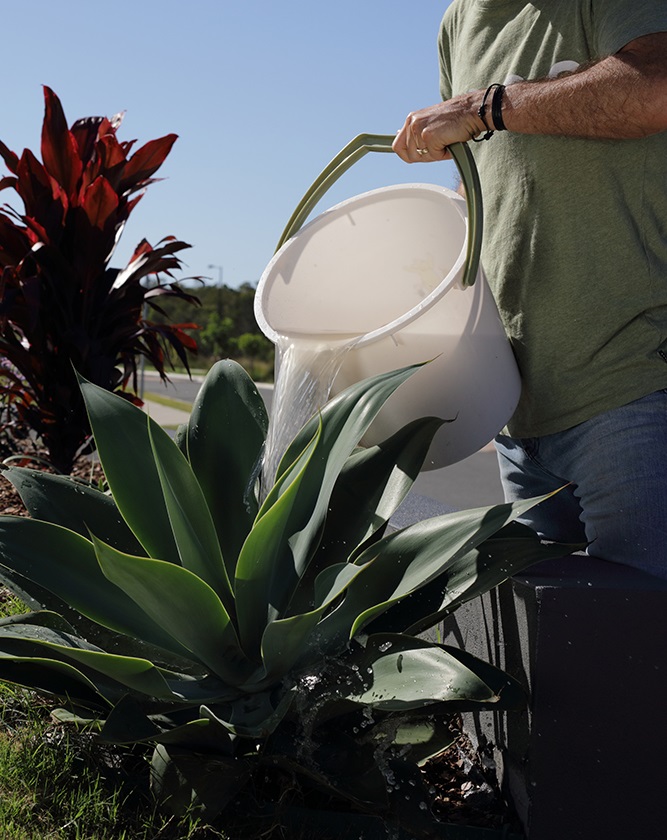Greywater

Unitywater is not responsible for treating or handling greywater.
Greywater is generated from the bath, shower, wash basin and laundry. It can be diverted for use on lawns and gardens. Kitchen greywater is not suitable, as grease and oil from the kitchen can clog up pipes and pumps. Using greywater wisely is a great way to save water around the house.
Tips for using greywater safely and effectively:
- Take care not to keep watering the same area – it can affect soil and can cause plants to die.
- Be careful when using greywater on native plants.
- Don't use greywater on edible parts of vegetables or fruits.
- Make sure greywater does not enter swimming pools or flow into neighbouring properties.
- Avoid bad smells or damage to plants by restricting use or moving the outlet.
- Keep away from children's play areas.
- Greywater can’t be stored on a property in rainwater tanks or other containers as it is a health risk.
- Always wash your hands after using greywater.
Bore water
Unitywater is not responsible for bore water. It is not treated and therefore not safe to drink.
Bore water is a natural resource and it can be used for some domestic purposes (not drinking) instead of using the water we supply.
Whenever it rains, some of the water soaks into the ground where it is stored in underground areas of earth called 'aquifers'.
Bores drill into the aquifers and extract water from them. It is not treated and therefore is not safe to drink, but it can be used outdoors.Bore water is not an unlimited supply. It is dependent on the level of rainfall and how much water is absorbed into the aquifiers through the ground.
If bore users take too much freshwater out of the aquifer, then seawater will slowly fill the space, contaminating the freshwater source. It takes years for the aquifer to remove all traces of seawater and become usable again.
Due to the salt levels in seawater, it is not suitable for most garden use and the natural ecosystems could be affected.Currently, the state government’s Department of Natural Resources and Mines (DNRM) manages and regulates aquifers and bore water use. Unitywater has no legal powers to regulate domestic bores. However, we can help educate and inform the community to protect our natural water reserves for future generations.
For more information on drilling a bore, go to the Water bores page of the Business Queensland website. This page features: a guide to drilling for water, construction standards and permit considerations as well as a list of registered water bore drillers.
Most of Bribie Island sits on two aquifers — a deep one below a layer of rock and a shallow one above it. Rainwater soaks into the shallow aquifer and seeps slowly through until it discharges into the sea at the coastline. Some of the rainwater reaches the deep aquifer and then it moves slowly towards the coast. This effectively stops the seawater surrounding the island from soaking into the aquifers.
Most domestic bores on Bribie Island tap the shallow aquifer and therefore have the potential to interfere with the natural ecosystems. Soils on Bribie Island are sandy, they don’t hold moisture well and have low nutrients. The first step gardeners can take to be smart with their bore water is to choose plants and lawn that like sandy soils.
Here are some good ideas to help improve the sandy soil and keep your plants healthy:
- add organic matter like compost to help hold moisture and add nutrients.
- add water-saving crystals to help hold moisture.
You might also be interested in
.jpg?as=1&h=160&iar=1&w=240&sc_lang=en&hash=21BB32DFD22811C8C70BD6E9DFE99E02)
Rainwater tanks

Recycled water


